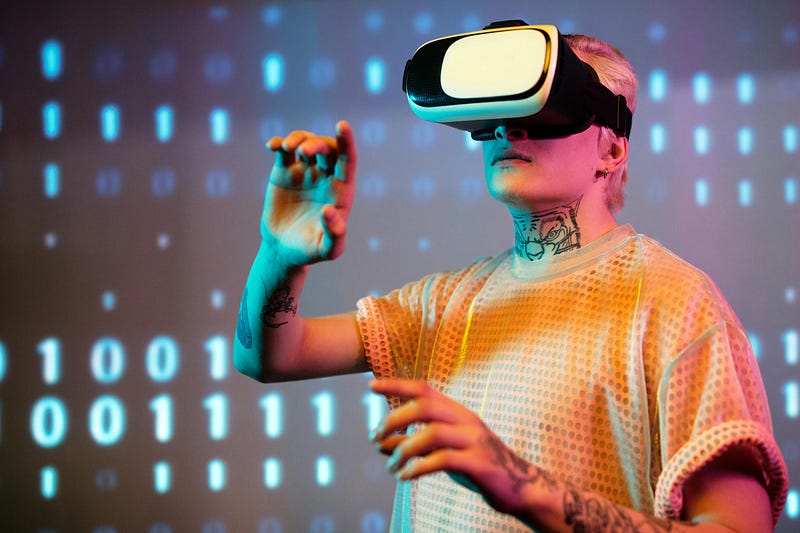
Quantum computing is not a fad word-it actually fixes problems previously considered impossible. For decades, classical computers have ruled our world but not anymore-it has reached its limits. Quantum computing promises to go a little further.
All about a computer that can crack some complex codes, discover new medicine, and optimize systems in seconds, that is the power of quantum computing-it uses strange principles of quantum physics to work in ways we are just beginning to understand. Impressive, huh? But what really lies in the future of this promising technology?
Will this really shake-up industries otherwise become known as all hype? In this article, we will dive right into the world of quantum computing. You will know how it works, the challenges it faces, and how life will change because of it. The quantum revolution is on its way. Let’s see what it stands for in the future.
2. What is Quantum Computing?
Quantum computing is a part of a new mode of manipulating information. Where classical computers use bits (which can be either a 0 or a 1) quantum computers use qubit meaning that the state of a qubit can either represent a 0, 1, or both at the same time due to a property of superposition.
The other primary feature is called Entanglement. In an entangled qubit, state of one qubit is linked with another even at a distance. This enables quantum computers to make complex calculations much faster. Another principle that helps quantum computers solve problems is quantum interference. It ensures that the right answers are amplified, and the wrong ones cancel each other out.
How it Differs from Classical Computing
The class computer runs things serially. They use the step-by-step method for solving problems. The quantum computer can check a variety of solutions at once. They are incredibly powerful in specialized jobs like factoring large numbers or trying to optimize systems.
Quantum Algorithms
A number of quantum algorithms already show a glimpse of its promise. Such as:
- Shor’s Algorithm: It breaks huge encryption keys, posing threats to the current security of the cybersecurity systems.
- Grover’s Algorithm: Expedites the search processes in big databases.
Therefore, these algorithms illustrate why quantum computation is so promising. It is not just faster; it works in a fundamentally different way. Quantum computation is still in its infancy. But understanding these basics helps us see why it’s a game-changer. The next sections will explore where this technology is now and where it’s headed.
2. Current State of Quantum Computing
It’s all going so far. The present leaders are both the large and small companies. IBM, Google, Microsoft, and many others have seriously invested in this technology. Companies like Rigetti , IonQ , and D-Wave have shown real developments in quantum computing.
Applications to Real Life
It may seem a little experimental now. Still, it is applying itself to real-life needs.
- Optimization Problems: Quantum computers help solve such hard logistics and scheduling issues.
- Drug Discovery: They can model molecules, which means their discovery of new medicines happens faster.
- Cryptography: Quantum computers can test how much encryption systems are capable.
Hence, these applications show the potential, even at its early stages.
Most Outstanding Achievement
In 2019, Google claimed to have reached its limit for quantum supremacy, perhaps the first. This refers to the ability of a quantum computer to solve a problem in times when it would be impossible for any classical computers to do so.
IBM and others disagree on what constitutes true quantum supremacy. Hardware advancement has also been tremendous. Today’s quantum processors are able to process more qubits than ever before. Nevertheless, they have limitations in the form of short coherence times and high error rates.
Software development is catching up too. Platforms like IBM’s Qiskit and Google’s Cirq are making quantum programming more accessible.
It is not completely ready to reach the masses. The systems are fragile and luxurious. But entertains a steady process, increasing the premises. So, the next big step is to overcome challenges, which we are going to discuss in the upcoming section.

3. Quantum Computing Assaulting Challenges
It is a promise; quantum computing is a far cry from perfection. Many challenges need to be resolved before it can be fully realized.
Technical Challenges
The first broad issue is error rates. Qubits are extremely sensitive to their environments. Those little changes cause errors, which evolve into quantum decoherence. Error correcting methods have been studied, but these are still very young, right now.
Scalability is another challenge. It is difficult to build quantum systems with more qubits. The more qubits added, the harder it is to maintain stability. Current systems are powerful but not yet large enough for most practical tasks.
Resource Challenges
Quantum computing is expensive. The machines require advanced materials and operate at near-absolute-zero temperatures. This makes development and maintenance costly.
Access is also limited. Only a few companies and research institutions can afford quantum systems. Therefore, this exclusivity slows widespread experimentation and innovation.
Ethical and Security Concerns
Quantum computing poses risks to modern encryption. Algorithms like Shor’s could break widely used cryptographic systems. This poses a threat to state security data, business security data, and personal security data. Another problem is equitable access. If only a few entities control quantum computing, it can deepen the technology gap between nations and industries.
These challenges are numerous, but good strides are being made. Researchers are beginning to develop novel materials, better algorithms, and novel designs. All must be tackled and crossed for the future growth of quantum computing. The next section will be devoted to the incredible opportunities provided by this technology.
4. The Future Possibilities of Quantum Computing
These sorts of applications are not yet more interesting than those we have already begun and are going to begin to imagine in the parts of industries such as quantum computing.
Its power lies in solving problems too complex for classical computers.
Healthcare:
Quantum computers can simulate molecules at an atomic level. This could speed up drug discovery and lead to personalized medicine. They may also help create new materials for medical devices.
Artificial intelligence:
Quantum computing has the capability to process large volumes of data at an extraordinarily high rate. This may be useful for assisting machine learning and improving the capacity of AI to perform tasks beyond current human capability.
Finance:
Quantum systems can optimize investment strategies, model risks, and detect fraudulent actions. They analyze data at unbelievably high speeds and offer much better insight into decision-making.
Energy:
Quantum computers could optimize power grids for efficiency. Hence, they might also help design better batteries and materials for renewable energy.
Solving Grand Challenges
Quantum computing can solve global problems. For instance, it can be used to develop solutions for climate change through modeling complex environmental systems. It can optimize logistics in space exploration. It can improve food production and distribution systems. These possibilities are not just theoretical. It depends on the resolution of currently insurmountable challenges. Assuming we do, it could redefine what’s possible in science, technology, and everyday life. The next section explores when this future might become a reality.
5. When Will Quantum Computing Become Mainstream?
Quantum computing is advancing fast, but not quite mainstream. Experts believe that it may take years, even decades, to fully mature.

Predictions from Experts
In the next 5–10 years, we will witness breakthroughs in hardware and software. Companies are working to build quantum systems with thousands of stable qubits. By 20 years, quantum computers might solve real-world problems at scale.
However, these timelines depend on overcoming difficult challenges. Progress in error correction, scalability, and cost reduction will be key.
Metrics for Mainstream Adoption
For quantum computing to go mainstream, certain milestones must be reached:
- Hardware Innovation: Faulty qubits and decreased error rates.
- Software Infrastructure: Platforms like IBM’s Qiskit and Google’s Cirq should advance to a point of near-classical ease.
- Commercial Use Cases: Quantum devices have to present well-defined quantum supremacy compared to the best classical computers.
The Governments and Industries must increase investments, partnerships, and policies. For instance, in the United States, China, and Germany, they are spending billions of dollars.
Role of Governments and Industry
Governments start setting up quantum initiatives as drivers of innovation. Related industries start forming partnerships to create shared knowledge and resources pools. This collaborative effort is speeding things up.
It is hard to pin down an exact timeline, but one thing is certainly clear: quantum computing will arrive. It may take months or years, but no one can stop the eventual revolution. Therefore, the final chapter will look at what all this means for professionals and businesses.
6. What Does quantum computing Mean for Professionals and Businesses?
Quantum computing is not just for scientists. It will impact professions and businesses from all industries. Staying ahead requires preparation now.
Preparing for the Quantum computing Era
Professionals must acquire skills in quantum computing. Basic understanding of quantum mechanics and programming tools such as Qiskit or Cirq are a good start. Universities and online platforms provide courses and certifications in quantum technologies.
Businesses should keep close tabs on quantum developments. Companies in finance, healthcare, and logistics would particularly be early adopters. Hence, the development of a strategy to integrate quantum solutions will be important.
Significance for Businesses
Quantum computing solves problems that have no solutions in classical systems. Businesses can optimize the supply chain, enhance cyber security, and analyze tremendous datasets much faster. And this puts early adopters ahead in the competition chain.
Partnerships with quantum providers are increasing. Businesses can collaborate with companies like IBM, Google, or startups to access quantum resources. Such partnerships reduce costs and risks while exploring new possibilities.
Innovation Incentives
Quantum computing opens doors for startups and developers. Many industries are still in the process of exploring how to use this technology. Innovators who create new applications will shape the future.
Quantum computing will reshape industries and careers. By learning about it now, professionals and businesses can prepare for its arrival. Those who prepare will profit from the coming quantum revolution. We will recap all of that and look ahead to this conclusion.

Conclusion
The most high-impact technology of the future, quantum computing, could access opportunities beyond what’s possible today with classical computers. In turn, because of its fundamental nature, quantum mechanics-in terms of superposition, entanglement, and interference-it is powerful.
Developmental stages exist in the early days, and fields such as healthcare, Artificial Intelligence, finances, and energy are promising to gain from quantum computing.
Their solutions are not without challenges such as high error rate, scalability, and ethical concerns. Much hard work is put forward by government agencies, the private sector, and academia to eradicate these hindrances. Although many predictions assure that quantum computing will be in the classroom in the next few decades, its passage will be shaped by continual innovation and investment.
For professionals, an introduction to quantum computing gives access to some exciting new opportunities. For businesses, getting ready for the disruption that will be caused by quantum is a must in order to remain competitive. The quantum revolution is coming; it won’t be about faster, better computers. It will be about what you can really do with technology. Hence , the future of quantum computing is undeniably bright, and perhaps sooner than we think.

